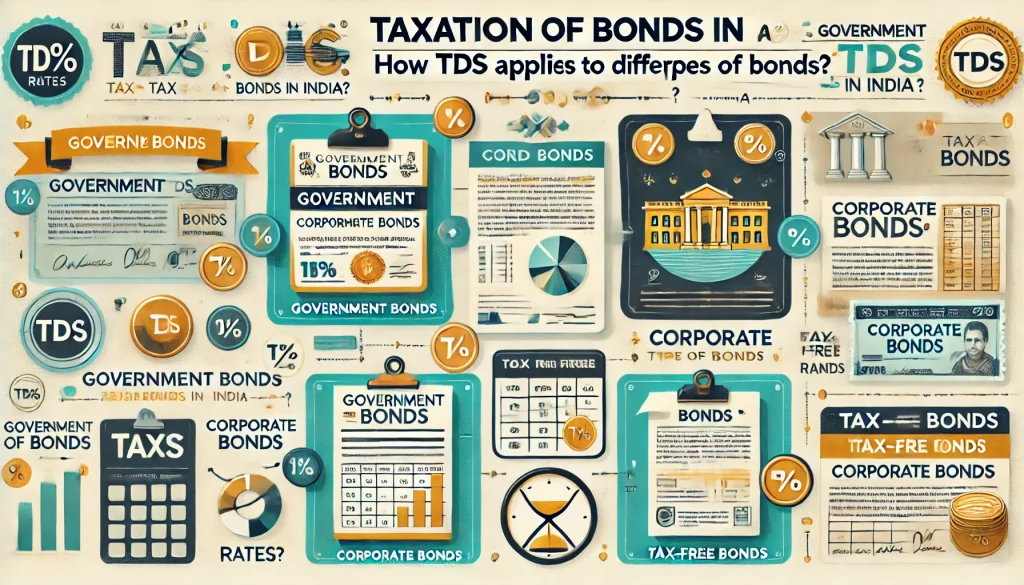
If you want to reduce your tax liability while having a high tax bracket, you can invest in some of the best tax-free bonds in India. These bonds help you earn tax-free interest as regular income semi-annually or annually. Learn about these bonds in detail here to make an informed purchase decision.
Top Tax-free Bonds in India
Here are some of the best tax-free bonds in India in 2024:
| Issuer | Coupon Rate (Interest Rate) | Maturity Date |
|---|---|---|
| National Highways Authority of India | 8.75% | 5th February 2029 |
| National Housing Bank | 9.10% | 16th November 2033 |
| NTPC Limited | 8.91% | 16th November 2033 |
| Rural Electrification Corporate Limited | 8.71% | 24th September 2028 |
| Housing and Urban Development Corporation | 7.64% | 8th February 2032 |
| Indian Railways Corporation Limited | 8.63% | 26th March 2029 |
| Power Finance Corporation Limited | 8.67% | 16th November 2033 |
Who Should Invest in High-return Tax-free Bonds?
Here are the categories of investors who can invest in some of the best tax-free bonds in India:
Risk Averse Investors
Conservative investors with a low-risk appetite can invest in these bonds. This ensures capital protection, a stable income and high returns.
High-Income Individuals
High-income individuals are in a high tax bracket. However, if they want to reduce their tax liability with regular income, they can invest in tax-free bonds. Interest income from these bonds is completely tax-free.
Investors with Long-term Financial Goals
If you have a long-term financial goal ranging between 10 years to 20 years, you can invest in tax-free bonds. The tenure of these bonds usually lies in the range mentioned above.
How Do Tax-Free Bonds Work?
Issuing authorities of tax-free bonds raise funds by issuing bonds to investors. These government-backed issuing authorities use the funds collected for infrastructure, power and housing projects. In turn, they provide interest to the investors.
The interest earned from these bonds is tax-free. Further, investors receive their principal amount on maturity of the bond. As these bonds are listed on Indian stock exchanges, investors can sell them before maturity.
How to Apply for Tax-free Bonds?
Here are the steps to apply for tax-free bonds in India:
Step 1: Choose a tax-free bond based on its interest rate, issuer, tenure and credit rating.
Step 2: Check the eligibility criteria, such as age.
Step 3: If you do not have a demat account, you need to open one with your preferred depository participant.
Step 4: Transfer your purchase amount from your savings account to your demat account.
Step 5: Apply for the bond of your choice.
Step 6: Once the bonds are allotted, you can track the same using your demat account.
Step 7: You can check your demat account semi-annually or annually for interest credits.
Credit Rating of Tax-free Bonds
Here are the credit ratings of bonds:
| Credit Rating | Investment Type | Risk Level |
|---|---|---|
| AAA | Highly Safe | Lowest credit risk |
| AA–, AA, AA+ | Considerably Safe | Very low credit risk |
| A–, A, A+ | Adequately Safe | Low credit risk |
| BBB–, BBB, BBB+ | Moderately Safe | Moderate credit risk |
| BB | Moderately Safe | Moderate risk |
| B–, B, B+ | Less Safe | High risk of default |
| C | Less Safe | Very high risk of default |
| D | Unsafe | In default or expected to default |
Things to Consider Before Investing in High-Return Tax-free Bonds
Consider the following things before you invest in one of the best tax-free bonds in India:
- Tenure: Ensure you are looking for long-term financial goals, as the tenure of these bonds ranges between 10 to 20 years.
- Interest Rates: Compare the interest rate (coupon rate) with other fixed-income investment options.
- Tax Bracket: As these bonds are suitable for high-income groups, check your tax bracket before you invest.
- Liquidity Needs: These bonds offer limited liquidity as they have a maturity period. However, you can sell these bonds on the stock exchange before maturity. Consider this liquidity framework before you invest in such a bond.
Advantages of Tax-free Bonds
The following are the advantages of tax-free bonds:
- Tax-free Income: The interest income on these bonds is tax-free.
- Safety: As the issuing authorities are government entities, the bonds are safe investment options.
- Stable Returns: The interest rates are predetermined. As a result, investors can earn stable returns.
- Trading Opportunity: As these bonds are listed in the Indian stock exchanges, you can sell them before maturity.
Difference Between Tax-savings Bonds and Tax-free Bonds
Here are the differences between tax-saving bonds and tax-free bonds:
| Tax-saving Bonds | Tax-free Bonds |
|---|---|
| The principal amount is tax exempted. | The interest income is tax-free. |
| The tax exemption applies under Section 80CCF of the Income Tax Act. | The tax exemption applies under Section 10 of the Income Tax Act. |
| The maximum tax exemption allowed during a financial year is ₹20,000. | Investors can invest a maximum of ₹5 lakhs in a financial year. |
| These bonds are redeemable after 5 to 7 years as they have a repurchase contract. | The maturity period of these bonds is 10 to 20 years. |
The Bottom LineSome of the best tax-free bonds in India have the best credit rating, making them a low-risk and safe investment option. You can invest in one of these bonds to earn interest and reduce your tax liability if you have a higher tax bracket. However, make sure to consider the tenure, issuer, coupon rate and credit rating before you invest in such bonds.
Frequently Asked Questions
A retail investor can invest up to ₹5 lakh in a tax-free bond. However, there is no criteria or limit of investment in tax-saving bonds in India.
You can buy tax-free bonds during a bond public issue when the bond first enters the market. Additionally, you can buy the bond using your demat account as these are tradable in the secondary market and listed on stock exchanges in India.


